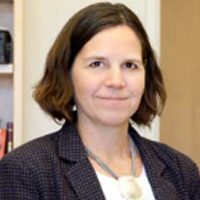You are here
Immigration and Tomorrow’s Elderly
Working Paper*, Mar 15, 2019
It is well-known that the U.S. population is aging. The Census Bureau predicts that there will be about 32 million Americans aged 80 and up in 2050, 2.6 times today’s number. In this project, we consider the implications of the coming demographic shift for caregiving labor, and the role immigration policy plays in the future of caregiving. We focus on eight occupations including nursing occupations and service jobs that might help elderly individuals age in place, such as housekeeping. Using the results from a cross-metropolitan area study, we show that metropolitan areas with a larger elderly population have disproportionate employment in caregiving occupations. We use these findings to predict that there will be substantial increases in these key occupations by 2050, representing a growth from 8.4 percent to 12 percent of the total workforce. We also document that the foreign-born are disproportionately represented in these caregiving occupations. Significant increases in the foreign-born population will be needed to maintain the current foreign-born representation in key caregiving occupations as the population ages. Immigration policy has important implications for the cost and quality of care that the elderly will receive in 2050.

Kristin Butcher
Kirstin Butcher is Professor of Economcs and Chair of the Economics Department at Wellesley College. Kristin's research primarily focuses on the impact of immigration on the United States and the causes of childhood obesity in this country. Her work encompasses the impact of immigration on labor market outcomes for U.S. natives, as well as the impact of immigration on crime in the United States. Kristin's work on childhood obesity examines links between school policies and children's health. Other research includes evaluating the impact of various higher education programs on student outcomes.

Tara Watson
Tara Watson is Professor of Economics and Chair of the Program in Public Health at Williams College, where she has taught since 2004. She was a Robert Wood Johnson Scholar in Health Policy Research at the University of Michigan from 2007 to 2009, and served as Deputy Assistant Secretary for Microeconomic Analysis in the U.S. Treasury's Office of Economic Policy from 2015 to 2016. Professor Watson's research focuses on immigration, health economics, and the social safety net. She holds a Ph.D. in Economics from Harvard University.
*This working paper was made possible by the US 2050 project, supported by the Peter G. Peterson Foundation and the Ford Foundation. The statements made and views expressed are solely the responsibility of the authors.
